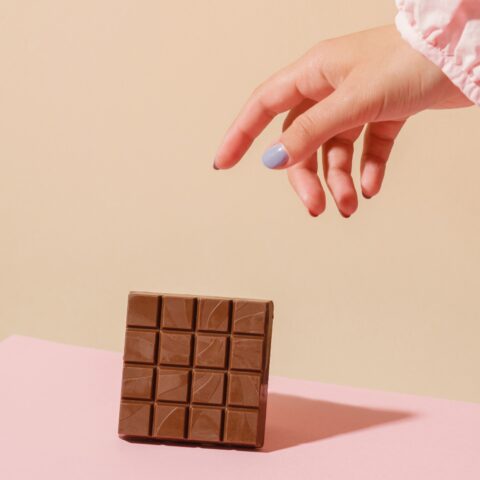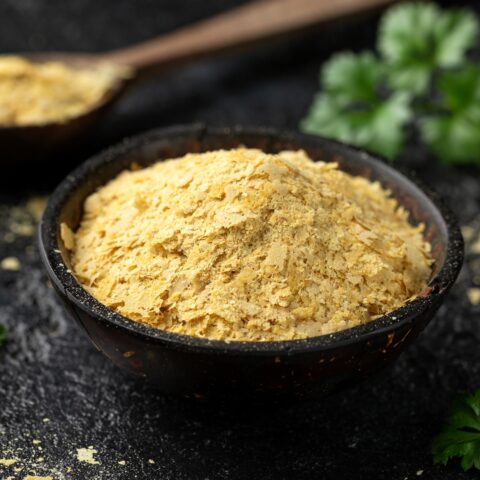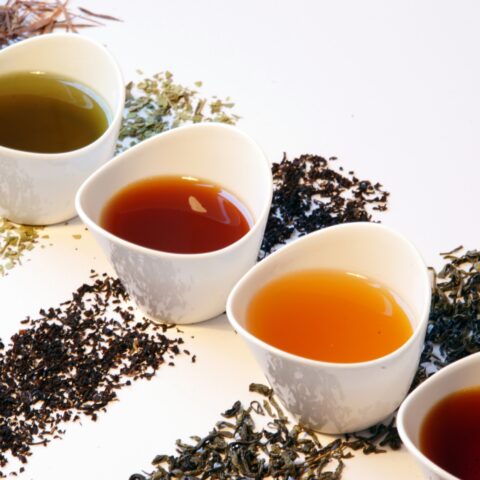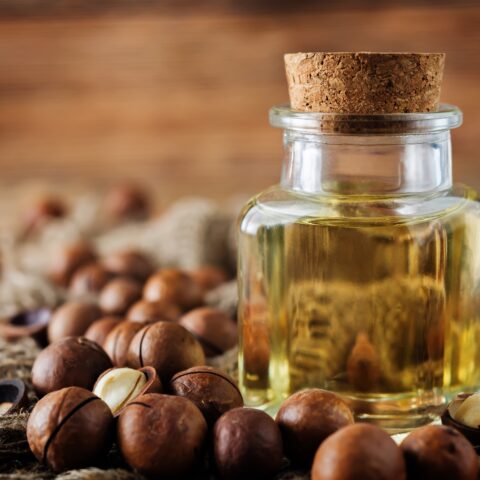Are Collagen Peptides Paleo?
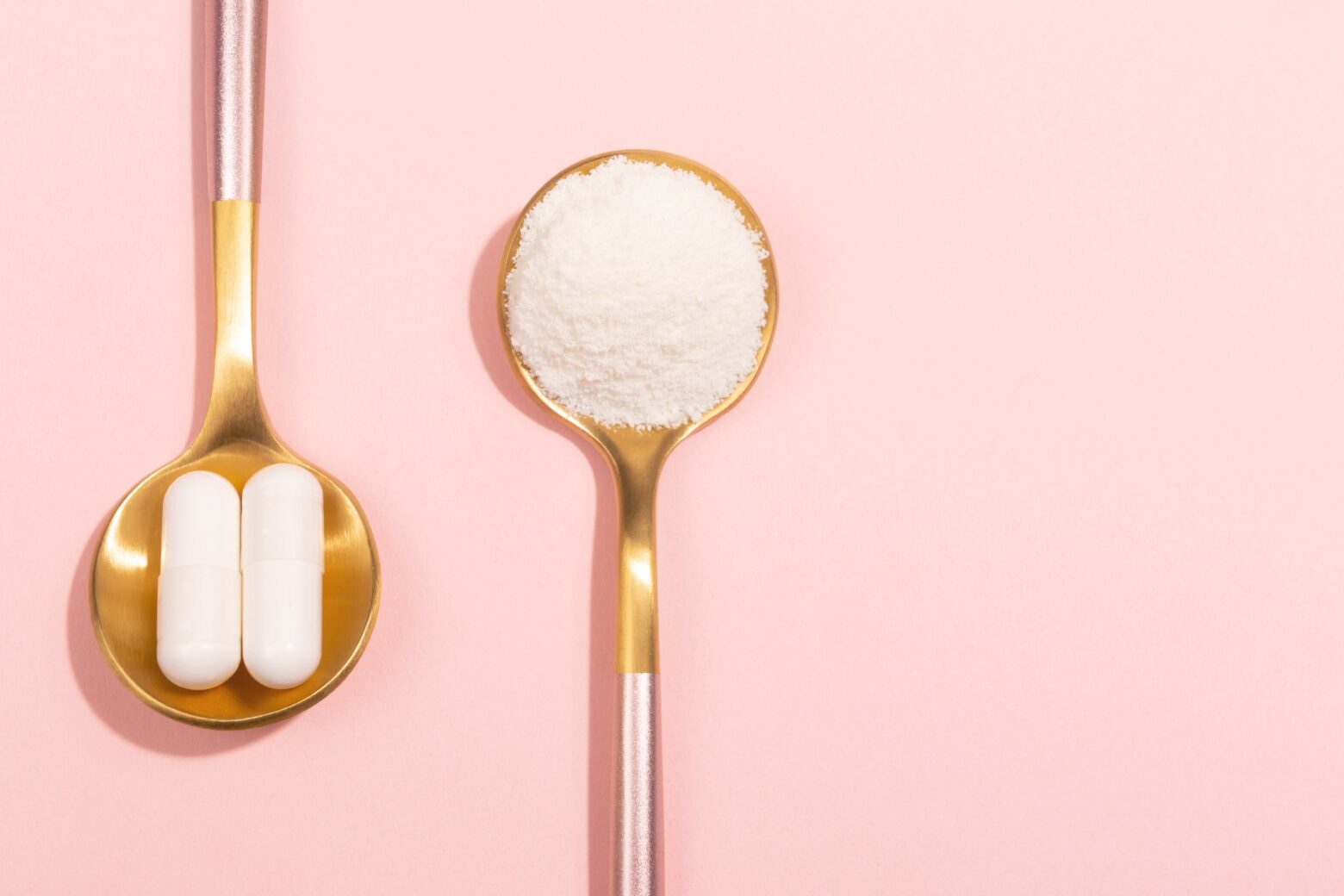
Collagen peptides are all the rage in the supplement world. They boast a range of health benefits including stronger hair, improved joint health, and better digestion. But are any of these claims true? And does The Paleo Diet® endorse them?
Collagen is the most abundant protein in your body, and as you age, your body starts producing less of it. [1]
But before you head for the supplement aisle, read on to see other ways that you can up your natural supply of collagen.
A Paleo Diet is best to naturally produce collagen. However, if you have certain digestive issues or cannot get enough collagen-rich whole foods, then a collagen peptide supplement may prove to be beneficial.
What’s the difference between collagen and collagen peptides?
First, let’s understand what collagen is, and why it’s so important.
Our bodies are composed of different proteins, and collagen accounts for about one-third of its protein composition. It is the main component of connective tissue and one of the major building blocks of bones, skin, muscles, tendons and ligaments. [2] Think of collagen as the glue holding your body together.
Your body naturally produces collagen. When you’re shopping for supplements, you’ll find a powder called collagen peptides. These are small pieces of protein derived from animals. When taken orally, these powders can help boost our body’s own collagen levels. [3]
How to naturally produce more collagen
As we age, our collagen production naturally decreases. Since we can’t avoid aging, we can slow the aging process down by following a Paleo lifestyle. Specifically, you’ll want to avoid sugar and refined carbs, too much sun exposure [4], stress and, of course, smoking.
When you slow down the aging process, you reap the benefits of better collagen production. The abundance of collagen in your body improves skin elasticity, strengthens nails and hair, promotes bone mineral density, and improves muscle recovery, to name a few. [5-6)]
Eating a whole food diet is always best
While you could supplement with collagen peptides, we encourage you to consume more collagen through your diet. It’s always better to get your nutrients from whole foods, which both negates the need for a powder and gives your body all the other nutrients that those foods have to offer. It’s important to remember that supplements are just that: supplemental to a high quality diet.
In Paleolithic times, our ancestors ate parts of animals that we commonly throw out. These “odd bits” of tough beef, skins, and raw tendons are full of those collagen peptides we’re after.
Today, if you collect those odds and ends and use them to create bone broth, the slow cooking process turns those peptides into a similarly gut-healing gelatin. This is a great way we can consume collagen peptides without having to purchase them as a supplement.
Bone broth gets a lot of attention, but there are lots of collagen-rich foods that you can load up on, including:
- Meat, including fish, chicken and beef
- Eggs
- Citrus fruit
- Berries
- Leafy greens
- Garlic
- Tomatoes
- Bell peppers
- Avocado
- Nuts and seeds
- Spirulina
The best part: All of these foods just happen to be Paleo!
When to try a supplement
As we mentioned before, a whole diet is usually best. However, if you have certain digestive issues or cannot get enough collagen-rich whole foods, then a collagen peptide supplement may prove to be beneficial. [7] Talk to your doctor to see if it may be helpful for your individual situation.
If you’re looking for ideas on how to consume your collagen peptides, try adding them to a nutrient-rich smoothie. This anti-inflammatory Golden Milk Smoothie or this Brain-Boosting Blueberry Smoothie are a very good place to start!
Important note: Speak with your physician before taking any supplements. As always, it’s important to read labels carefully! Choose from reputable brands containing only collagen proteins, without any fillers, additives, or flavors. Whenever possible, select high-quality sources from pasture-raised beef or wild-caught fish.
The bottom line
Collagen is an important protein that improves skin elasticity, bone density, and joint health. [5]
Our body naturally produces it, but production declines as we age—and will degrade even faster if we are not mindful about the food we eat. [8]
Supplements usually work best when you are making up for a deficiency and the best way to avoid that is to follow a balanced, whole food diet. So before you reach for the collagen peptides at the store, be sure to load up on collagen-rich foods like meat, fish, leafy greens, and other certain vegetables. Eating a healthy diet for long enough may even negate the use of supplements altogether!
References:
1. Varani J, Dame MK, Rittie L, et al. Decreased collagen production in chronologically aged skin: roles of age-dependent alteration in fibroblast function and defective mechanical stimulation. Am J Pathol. 2006;168(6):1861-1868. doi:10.2353/ajpath.2006.051302
2. Collagen [Internet]. Harvard.edu. 2021 [cited 2021 Jul 19]. Available from: https://www.hsph.harvard.edu/n…;
3. COLLAGEN PEPTIDES [Internet]. Webmd.com. [cited 2021 Jul 19]. Available from: https://www.webmd.com/vitamins/ai/ingredientmono-1606/collagen-peptides
4. Darvin ME, Richter H, Ahlberg S, et al. Influence of sun exposure on the cutaneous collagen/elastin fibers and carotenoids: negative effects can be reduced by application of sunscreen. J Biophotonics. 2014;7(9):735-743. doi:10.1002/jbio.201300171
5. Czajka A, Kania EM, Genovese L, Corbo A, Merone G, Luci C, et al. Daily oral supplementation with collagen peptides combined with vitamins and other bioactive compounds improves skin elasticity and has a beneficial effect on joint and general wellbeing. Nutr Res. 2018;57:97–108.
6. Clifford T, Ventress M, Allerton DM, Stansfield S, Tang JCY, Fraser WD, et al. The effects of collagen peptides on muscle damage, inflammation and bone turnover following exercise: a randomized, controlled trial. Amino Acids. 2019;51(4):691–704.
7. Paul C, Leser S, Oesser S. Significant amounts of functional collagen peptides can be incorporated in the diet while maintaining indispensable amino acid balance. Nutrients. 2019;11(5):1079.
8. Schagen SK, Zampeli VA, Makrantonaki E, Zouboulis CC. Discovering the link between nutrition and skin aging. Dermatoendocrinol. 2012;4(3):298–307.
Irene Jay
Irene Jay is a Holistic Health Coach and a certified Nutrition Coach from Vancouver, BC.
More About The Author
